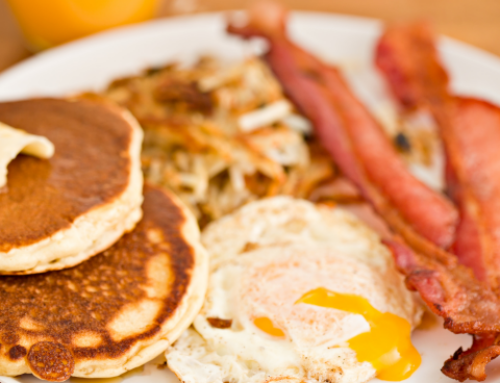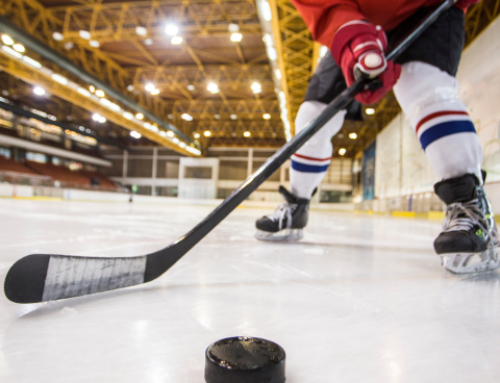Hydration for the Heat
One thing summer guarantees is heat—serious heat—the kind that can lead to excessive sweating, dehydration, illness and possibly death. In 2001, heat-related illness found a face when it took the life of Minnesota Vikings offensive lineman Korey Stringer. The All-Pro tackle—whose death followed a training session in late July—was the first NFL player to die from a heat-related illness. A year and a half later, on Feb. 17, 2003, Steve Bechler, a pitcher for the Baltimore Orioles, died from the same condition following a spring training practice in Fort Lauderdale, Fla.
Stringer and Bechler are two of the nearly 400 people who die each year from the effects of heat. What makes heat-related deaths even more unfortunate is that they are preventable with proper hydration.
Water acts as the body’s natural cooling system. The system works when enough water is available to keep body temperatures under control. But when fluid levels run low, the system suffers, body temperatures soar, and dizziness, vomiting and death can result.
Supplements can contain substances that deplete fluid levels. One such substance, Ephedra, is believed to have played a role in the deaths of Stringer and Bechler. Although Ephedra is now banned, other supplement ingredients, such as caffeine, also cause dehydration.
Check out these hydration tips from Casey Smith, athletic trainer for the Dallas Mavericks. He recommends maintaining proper fluid levels with water and sports drinks, and explains how caffeine reverses your efforts to stay hydrated.
Drink all day
From our studies with the Gatorade Sports Science Institute, we’ve found that many athletes head into workouts or games inadequately hydrated. So we really stress that athletes maintain good hydration throughout the day—not just an hour or two before and after workouts. Drinking a lot right before a workout isn’t as effective and can leave you feeling bloated.
Many athletes avoid drinking fluid during a workout or game because they think it can slow them down. The opposite is true. If you don’t keep your body hydrated, it will be less efficient, your endurance will suffer and you won’t generate as much force or speed.
Buy some sports drinks
Athletes should drink sports drinks instead of water during longer workouts. They quickly replenish fluid levels and provide an immediate source of carbohydrates for energy. The body can break down protein and fat for fuel, but sports drinks deliver it quicker. Post-workout sports drinks aid recovery.
Sports drinks also provide certain necessary minerals, like sodium and potassium. Science has shown that when an athlete has significant depletion of these minerals, he is more prone to muscle cramping. Sports drinks effectively prevent muscle cramps—especially for those with a history of the problem.
Avoid Caffeine
Caffeine is a one of the most common substances added to supplements and so-called energy drinks. It’s a diuretic, which counteracts your hydrating efforts. It’s important to avoid caffeine in supplements and fluids.
Quick Tips
• Drink cool water—not freezing water, which can give you a headache. If the temperature of your H2O prevents you from drinking it, you’re doing yourself a disservice.
• Drink 12-24 ounces of water or sports drink an hour before activity and 12-16 ounces halfway through.
• Weigh in and out of each practice or workout. Drink enough fluids to replace any weight lost before you begin your next game or training session.
• Use the color of your urine as an indicator of hydration levels. If you drink a lot of fluid and your urine is still dark, you’re dehydrated. Drink until it’s lighter and clear.
• Get accustomed to the summer heat by gradually training outside. Avoid working out during the hottest part of the day.
• Grab a drink during every break in play throughout a game.
RECOMMENDED FOR YOU
MOST POPULAR
Hydration for the Heat
One thing summer guarantees is heat—serious heat—the kind that can lead to excessive sweating, dehydration, illness and possibly death. In 2001, heat-related illness found a face when it took the life of Minnesota Vikings offensive lineman Korey Stringer. The All-Pro tackle—whose death followed a training session in late July—was the first NFL player to die from a heat-related illness. A year and a half later, on Feb. 17, 2003, Steve Bechler, a pitcher for the Baltimore Orioles, died from the same condition following a spring training practice in Fort Lauderdale, Fla.
Stringer and Bechler are two of the nearly 400 people who die each year from the effects of heat. What makes heat-related deaths even more unfortunate is that they are preventable with proper hydration.
Water acts as the body’s natural cooling system. The system works when enough water is available to keep body temperatures under control. But when fluid levels run low, the system suffers, body temperatures soar, and dizziness, vomiting and death can result.
Supplements can contain substances that deplete fluid levels. One such substance, Ephedra, is believed to have played a role in the deaths of Stringer and Bechler. Although Ephedra is now banned, other supplement ingredients, such as caffeine, also cause dehydration.
Check out these hydration tips from Casey Smith, athletic trainer for the Dallas Mavericks. He recommends maintaining proper fluid levels with water and sports drinks, and explains how caffeine reverses your efforts to stay hydrated.
Drink all day
From our studies with the Gatorade Sports Science Institute, we’ve found that many athletes head into workouts or games inadequately hydrated. So we really stress that athletes maintain good hydration throughout the day—not just an hour or two before and after workouts. Drinking a lot right before a workout isn’t as effective and can leave you feeling bloated.
Many athletes avoid drinking fluid during a workout or game because they think it can slow them down. The opposite is true. If you don’t keep your body hydrated, it will be less efficient, your endurance will suffer and you won’t generate as much force or speed.
Buy some sports drinks
Athletes should drink sports drinks instead of water during longer workouts. They quickly replenish fluid levels and provide an immediate source of carbohydrates for energy. The body can break down protein and fat for fuel, but sports drinks deliver it quicker. Post-workout sports drinks aid recovery.
Sports drinks also provide certain necessary minerals, like sodium and potassium. Science has shown that when an athlete has significant depletion of these minerals, he is more prone to muscle cramping. Sports drinks effectively prevent muscle cramps—especially for those with a history of the problem.
Avoid Caffeine
Caffeine is a one of the most common substances added to supplements and so-called energy drinks. It’s a diuretic, which counteracts your hydrating efforts. It’s important to avoid caffeine in supplements and fluids.
Quick Tips
• Drink cool water—not freezing water, which can give you a headache. If the temperature of your H2O prevents you from drinking it, you’re doing yourself a disservice.
• Drink 12-24 ounces of water or sports drink an hour before activity and 12-16 ounces halfway through.
• Weigh in and out of each practice or workout. Drink enough fluids to replace any weight lost before you begin your next game or training session.
• Use the color of your urine as an indicator of hydration levels. If you drink a lot of fluid and your urine is still dark, you’re dehydrated. Drink until it’s lighter and clear.
• Get accustomed to the summer heat by gradually training outside. Avoid working out during the hottest part of the day.
• Grab a drink during every break in play throughout a game.











